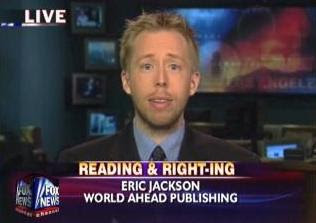Thoughts on the Fed trying to clean up its own mess
David Wessel of the WSJ has an excellent column today entitled "Ten Days that Changed Capitalism" that explains the significance of the recent steps undertaken by the Federal Reserve and Bush Administration to address the current financial crisis. To sum it up, Wessel quotes economist Ed Yardeni: "The Government of Last Resort is working with the Lender of Last Resort to shore up the housing and credit markets to avoid Great Depression II."
Wessel certainly makes some good points. It may be too early to tell how all of this will play out. While government involvement in the economy via the central bank or Treasury is generally undesirable and will most certainly have long-run unanticipated consequences, I am sympathetic to Fed Chair Ben Bernanke in one regard. He inherited a mess that his predecessor, Alan Greenspan, played a large role in creating. Greenspan's manipulation of interest rates following 9/11 caused a distortion in the free market, injecting excess liquidity that largely made its way into real estate and set the stage for a bubble.
In a way, it's deja vu all over again. As I wrote in my book The PayPal Wars, we saw the same drama play out eight years ago in Silicon Valley. Currency market "contagion" in the late '90s had been the catalyst for Greenspan's interest rate roller coaster, and tech stocks were the asset class that was taken along for the ride. That bubble burst as rates were rapidly jacked up by the Fed after it had concluded a period of aggressive cutting. Sound familiar?
Wessel makes the point that capitalism might be profoundly changed by this current crisis. And that seems possible. But can the Fed's policy of using interest rates in Keynesian fashion -- to "stimulate" the economy -- really be called a form of capitalism? It seems more like central planning than the Invisible Hand. But I doubt that any of the presidential candidates, and certainly not Hillary or Obama, will cite this crisis as a reason for less government meddling in the economy.
Wessel certainly makes some good points. It may be too early to tell how all of this will play out. While government involvement in the economy via the central bank or Treasury is generally undesirable and will most certainly have long-run unanticipated consequences, I am sympathetic to Fed Chair Ben Bernanke in one regard. He inherited a mess that his predecessor, Alan Greenspan, played a large role in creating. Greenspan's manipulation of interest rates following 9/11 caused a distortion in the free market, injecting excess liquidity that largely made its way into real estate and set the stage for a bubble.
In a way, it's deja vu all over again. As I wrote in my book The PayPal Wars, we saw the same drama play out eight years ago in Silicon Valley. Currency market "contagion" in the late '90s had been the catalyst for Greenspan's interest rate roller coaster, and tech stocks were the asset class that was taken along for the ride. That bubble burst as rates were rapidly jacked up by the Fed after it had concluded a period of aggressive cutting. Sound familiar?
Wessel makes the point that capitalism might be profoundly changed by this current crisis. And that seems possible. But can the Fed's policy of using interest rates in Keynesian fashion -- to "stimulate" the economy -- really be called a form of capitalism? It seems more like central planning than the Invisible Hand. But I doubt that any of the presidential candidates, and certainly not Hillary or Obama, will cite this crisis as a reason for less government meddling in the economy.


0 Comments:
Post a Comment
<< Home